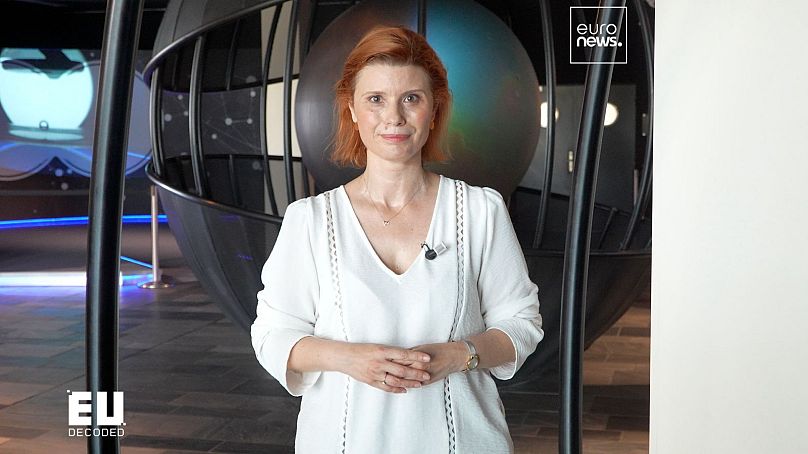A revolution is coming to space, according to the European Commission, which has just proposed a new Space Act. Increasing the EU’s competitiveness in the space sector is the goal of the new legislation, but is the bloc willing to invest enough to lead the space race?
The global space economy was valued at €572 billion in 2023, according to the European Space Agency, and it is estimated to reach €1.6 trillion in a decade.
The main focus of the new EU Space Act is launchers and satellites, which are increasingly important for activities as diverse as communications, navigation, meteorology and renewable energy.
However, Europe lags far behind the US and has spent just €12 billion in public funding on the space industry, compared with €65 billion in the US. The same applies to private investment: €980 million in the EU, compared with €3.6 billion in the US.
This will be a hot topic during negotiations for the future European Competitiveness Fund, within the scope of the 2028-2034 EU budget, which covers the space sector which will be looking for more money on the table.
"Now the whole allocation for space is around €17 billion. We know that we need more just to keep using the existing systems," European Commissioner for Defence and Space Andrius Kubilius told Euronews.
"We want also to simplify life for those who are engaging in the space industry and be ready for the revolution that is coming," Kubilius added in an interview.
Security and defence in space
The Space Act will create a common set of rules across the EU, with the main pillars being security and resilience, to minimise the risk of collisions, cyber-attacks and other interference from hostile powers.
The “rules of the road” will seek to bring order to the 11,000 satellites already deployed and the 50,000 new satellites planned for the next decade, as well as the 128 million pieces of space debris floating in orbit around Earth.
"Space is seen as the new frontier, a contested zone, where cyber attacks or electronic interference against satellites or ground stations, for example, can occur. This could lead to the loss of satellites or the services they provide, so there will be new rules for risk assessment," explained Gregoire Lory, who covers space policy for Euronews.
The new law does not apply to military uses, but a European Space Strategy for Security and Defence has existed since 2023, presented not long after Russia’s full-scale invasion of Ukraine.
The goal is to devise how to protect space systems, their supporting ground infrastructure and the data connections between them, including through joint space exercises.
"We have several very good satellite systems like Galileo (and) Copernicus. And now we are building IRIS2 for secure satellite communication. In order to service those systems in space, we need to have a good transport system, which Ariane 6 is doing. But when we're looking into what is coming, we understand that it is not enough. We need to build new capacities," admitted Commissioner Kubilius.
Watch the video here!
Journalist: Isabel Marques da Silva
Content production: Pilar Montero López
Video production: Zacharia Vigneron
Graphism: Loredana Dumitru
Editorial coordination: Ana Lázaro Bosch and Jeremy Fleming-Jones













